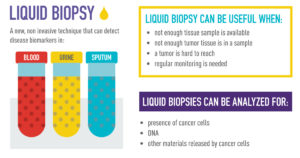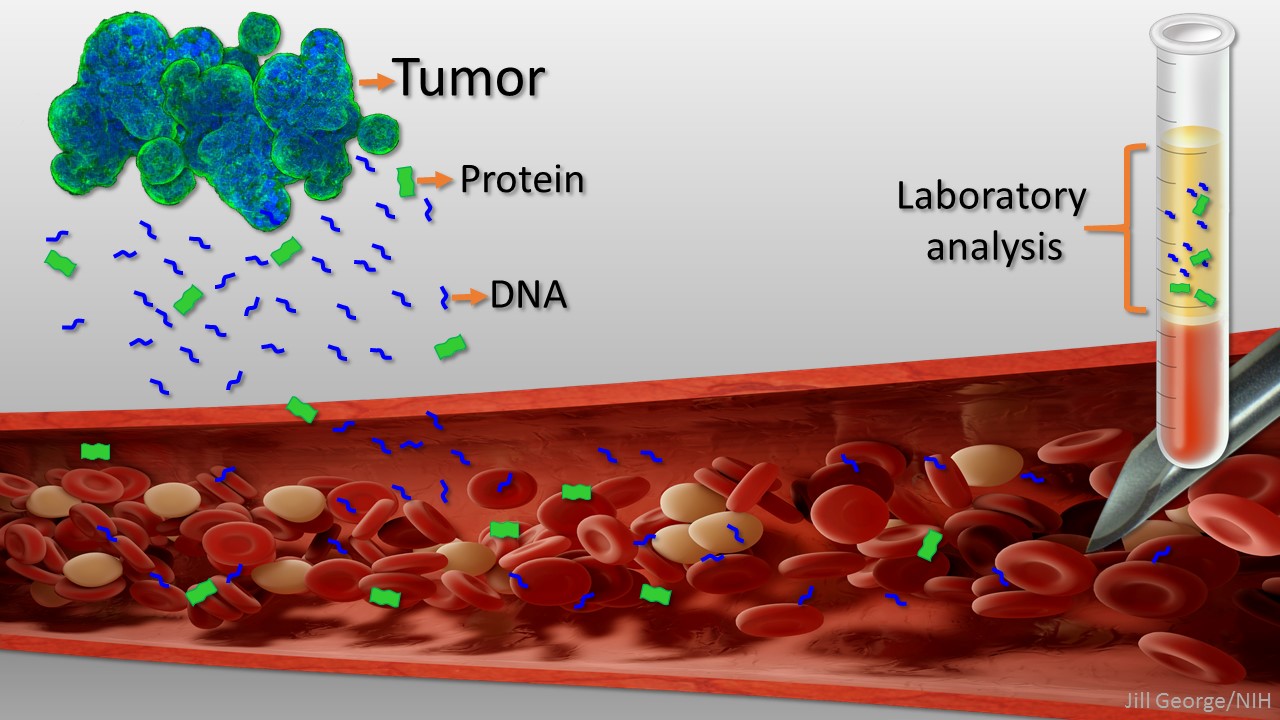The latest advances in detecting cancers through a blood test (a type of liquid biopsy) are exciting. After I read the blog posts by the NIH Director Francis Collins and by Derek Lowe, I started wondering where all this screening will lead. Whereas Collins emphasizes the encouraging aspects of the latest liquid biopsy results, Lowe is less enthusiastic. Lowe reminds readers that the number of actual people who will be falsely identified with cancer (false positives) or falsely identified without cancer (false negatives) are not trivial when you start screening large numbers of people. However, those of us who lost family members to a difficult to detect cancer or have a late-stage cancer that was not detected early enough to be surgically removed, the promise of better detection sounds like a miracle.

Noninvasive cancer detection methods are great diagnostic tools, especially those that do not cause adverse effects. Even radiography-based screening carries a risk of radiation-induced tissue damage. Thus, liquid biopsies, which involve detecting cancer products or cells in blood, urine, or spit, are important advances in cancer screening. These tests will continue to improve, but none will be 100% perfect. Furthermore, these tests may become so sensitive that nonlethal, nonsymptomatic cancers are detected so often that treating every detected cancer will not be appropriate. So, hand in hand with the advances in screening, we need diagnostic tools that will differentiate between cancers that are harmless and those that will affect quality of life and longevity.
Blog Posts
F. Collins, New ‘Liquid Biopsy’ Shows Early Promise in Detecting Cancer. NIH Directors Blog (30 January 2018). Post
D. Lowe, A Hard Look at Liquid Biopsies. In the Pipeline (22 January 2018). Post
Research
Cohen et al. Detection and Localization of Surgically Resectable Cancers with a Multi-Analyte Blood Test. Science (2018) DOI: 10.1126/science.aar3247 Abstract
Cohen et al. Combined Circulating Tumor DNA and Protein Biomarker-Based Liquid Biopsy for the Earlier Detection of Pancreatic Cancers. Proc. Natl. Acad. Sci. U. S. A. 114, 10202-10207 (2017). Abstract
Cite as: N. R. Gough, Challenges from Improvements in Cancer Screening. BioSerendipity (30 January 2018). https://www.bioserendipity.com/2018/01/30/challenges-from-improvements-in-cancer-screening/

